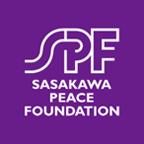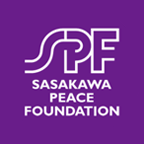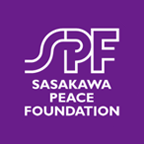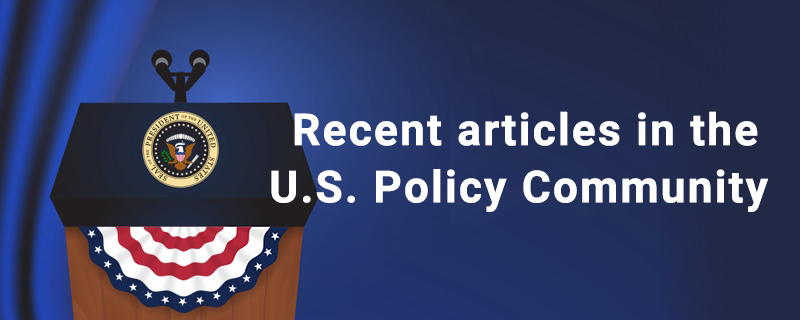The Role of the Japan-US Alliance in the Indo-Pacific in 2023: Russia-Ukraine War and China
On January 25th, 2023, the Sasakawa Peace Foundation and Sasakawa Peace Foundation USA hosted Admiral Philip S. Davidson.
Admiral Davidson was the 25th Commander of USINDOPACOM. In this capacity, he led the United States’ oldest and largest combatant command, consisting of nearly 380,000 personnel, and held the responsibilities for all U.S. military activities across the Indo-Pacific, covering half the globe, from 2018 to 2021.
Admiral Davidson shared his thoughts and insights on the role and challenges of the U.S.-Japan alliance in the Indo-Pacific region in 2023 including the issue of Taiwan. The discussion was moderated by Dr. Satohiro Akimoto, Chairman and President of the Sasakawa USA with Mr. James L. Schoff, Senior Director of Sasakawa USA as a discussant.
The video of the session can be viewed below.
Recorded on: Wednesday, January 25, 2023 (JST)
Speaker: Admiral Philip S. Davidson
Moderator: Dr. Satohiro Akimoto
Commentator: Mr. James L. Schoff
Co-organized by Sasakawa Peace Foundation / Sasakawa Peace Foundation USA
*Disclaimer: The views and opinions expressed in this session are those of the speakers and do not represent the views of the Sasakawa Peace Foundation, Sasakawa Peace Foundation USA, or the institutions to which the participants belong.
Admiral Philip S. Davidson
Admiral Philip S. Davidson was the 25 Commander of the United States Indo-Pacific Command from 2018 to 2021. He retired from active service in the U.S. Navy in May 2021 after nearly 39 years of service. USINDOPACOM is the United States’ oldest and largest combatant command and includes 380,000 Soldiers, Sailors, Marines, Airmen, Guardians, Coast Guardsmen and Department of Defense civilians and is responsible for all U.S. military activities in the Indo-Pacific region, covering 36 nations, 14 time zones, and more than 50 percent of the world’s population. Over the course of his U.S. Navy career, Admiral Davidson deployed across the globe in frigates, destroyers, cruisers and aircraft carriers, and he served in staff assignments in the Pentagon, at fleet headquarters, at the U.S. Department of State, and in the Office of the Vice President. His command tours include the ships USS TAYLOR (FFG 50) and USS GETTYSBURG (CG 64), Carrier Strike Group EIGHT/EISENHOWER Strike Group, as well as U.S. SIXTH Fleet in Naples, Italy and Naval Striking and Support Forces NATO in Lisbon, Portugal. He also commanded U.S. Fleet Forces Command/U.S. Naval Forces Northern Command in Norfolk, VA from 2014 to 2018 in his first 4-star assignment. Admiral Davidson is a 1982 graduate of the U.S. Naval Academy, and a 1992 distinguished graduate of the U.S. Naval War College. He holds a Bachelor of Science degree in Physics and a Master of Arts in National Security and Strategic Studies. His decorations include the Defense Distinguished Service Medal, the Navy and Marine Corps Commendation Medal with Combat “V,” a Superior Honor Award from the U.S. Department of State, the Grand Cordon of the Order of the Rising Sun Medal, and other personal, service, unit, and campaign awards.
Dr. Satohiro Akimoto is Chairman of the Board and President of Sasakawa Peace Foundation USA. He joined the organization in January 2019 and brings with him experience in the areas of business, research, intellectual dialogue, and student exchanges between Japan and the United States. Dr. Akimoto’s career has included roles at Mitsubishi Corporation, Mitsubishi International Corporation, Hughes Electronics, DirecTV Japan, Massachusetts Corporation for Educational Telecommunications, Japan Society, Keidanren USA, and Mt. Fuji Dialogue. On top of his responsibilities at Sasakawa USA, Dr. Akimoto is a contributing writer for The Japan Times, associate fellow at the International Institute for Strategic Studies in the UK, a contributing commentator for the Okazaki Institute in Japan, and a Japan Advisory Committee member of the Salzburg Global Seminar in Austria. Dr. Akimoto received a PhD in Sociology and a MA in East Asian Studies from Harvard University, as well as a BA in Law from Keio University. He also received a certificate in Russian studies from Leningrad State University (currently St. Petersburg State University). In addition, Dr. Akimoto studied at London University in the UK and at Georgetown University.
James L. Schoff is senior director of the US-Japan NEXT Alliance Initiative at Sasakawa Peace Foundation USA. As leader of this initiative, Schoff fosters networking and the development of joint recommendations involving a wide range of policy and technical specialists, in and out of government, to stimulate new alliance connections across foreign, security, and technology policy areas. The purpose is to help improve the alliance and how it serves shared interests, preparing it for new challenges in an increasingly complex and fluid geostrategic environment. Previously, Schoff was a senior fellow and director of the Japan Program at the Carnegie Endowment for International Peace for nine years, following two years as senior adviser for East Asia policy at the U.S. Office of the Secretary of Defense. At the Department of Defense, he supported strategic planning and policy development for security cooperation with Japan and the Republic of Korea. Schoff’s career spans over thirty years working in the fields of business, education, government, and the non-profit sector, all related to Japan, East Asia, and the U.S.-Japan alliance. This includes six years living in Japan and one year in Saipan. Schoff has written extensively on East Asian security, foreign policy, and emerging technology issues. Sample publications include: China and the New Role for Economic Security in the US-Japan Alliance (Sasakawa Peace Foundation, 2022), A High-Tech Alliance: Challenges and Opportunities for U.S.-Japan Science and Technology Collaboration (Carnegie, 2021), U.S.-Japan Technology Policy Coordination: Balancing Technonationalism With a Globalized World (Carnegie, 2020), Uncommon Alliance for the Common Good: The United States and Japan after the Cold War (Carnegie, 2017), and Tools for Trilateralism: Improving U.S.-Japan-Korea Cooperation to Manage Complex Contingencies (Potomac Books Inc., 2005).



